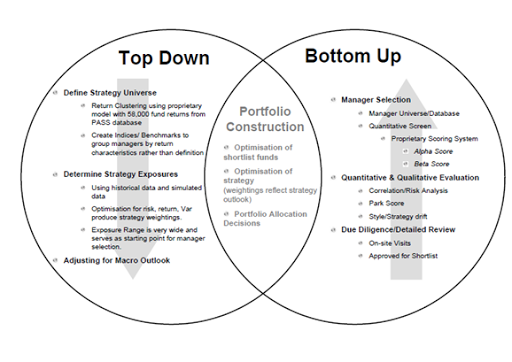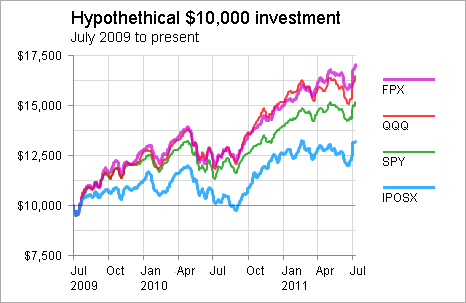Invest FAQ Mutual Funds Stocks versus Funds
Post on: 24 Август, 2015 No Comment

Last-Revised: 10 Aug 1999
Contributed-By: Maurice E. Suhre, Chris Lott (contact me )
This article discusses the relative advantages of holding individual stocks compared to mutual funds.
Question: What advantages do mutual funds offer over stocks?
Here are some considerations.
- A mutual fund offers a great deal of diversification starting with the very first dollar invested, because a mutual fund may own tens or hundreds of different securities. This diversification helps reduce the risk of loss because even if any one holding tanks, the overall value doesn’t drop by much. If you’re buying individual stocks, you can’t get much diversity unless you have $10K or so.
- Small sums of money get you much further in mutual funds than in stocks. First, you can set up an automatic investment plan with many fund companies that lets you put in as little as $50 per month. Second, the commissions for stock purchases will be higher than the cost of buying no-load funds
 (Of course, the fund’s various expenses like commissions are already taken out of the NAV). Smaller sized purchases of stocks will have relatively high commissions on a percentage basis, although with the $10 trade becoming common, this is a bit less of a concern than it once was.
(Of course, the fund’s various expenses like commissions are already taken out of the NAV). Smaller sized purchases of stocks will have relatively high commissions on a percentage basis, although with the $10 trade becoming common, this is a bit less of a concern than it once was. - You can exit a fund without getting caught on the bid/ask spread.

Question: Do stocks have any advantages compared to mutual funds?
Here are some considerations that will help you judge.
- The opposite of the diversification issue: If you own just one stock and it doubles, you are up 100%. If a mutual fund owns 50 stocks and one doubles, it is up 2%. On the other hand, if you own just one stock and it drops in half, you are down 50% but the mutual fund is down 1%. Cuts both ways.
- If you hold your stocks several years, you aren’t nicked a 1% or so management fee every year (although some brokerage firms charge if there aren’t enough trades).
- You can take your profits when you want to and won’t inadvertently buy a tax liability. (This refers to the common practice among funds of distributing capital gains around November or December of each year. See the article elsewhere in this FAQ for more details.)
- You can do a covered write option strategy. (See the article on options on stocks for more details.)
- You can structure your portfolio differently from any existing mutual fund portfolio. (Although with the current universe of funds I’m not certain what could possibly be missing out there!)
- You can buy smaller cap stocks which aren’t suitable for mutual funds to invest in.
- You have a potential profit opportunity by shorting stocks. (You cannot, in general, short mutual funds.)
- The argument is offered that the funds have a herd mentality and they all end up owning the same stocks. You may be able to pick stocks better.
More from this section














